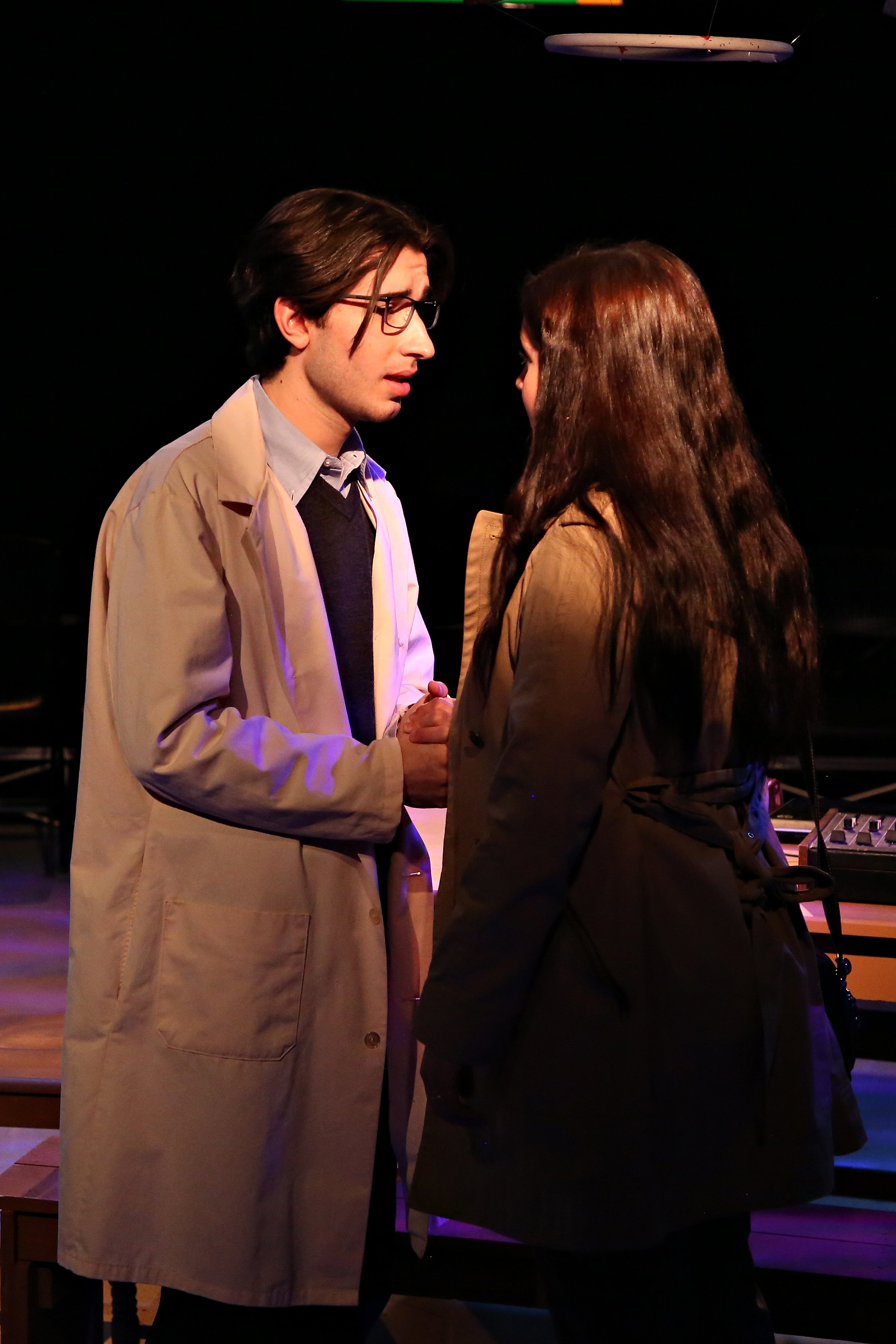Artist Statement
When I was little, I wanted to know what all kids wanted to know: Why?
I asked my mom a lot of questions growing up. When I started reading on my own, she would tell me to look it up and discover the answers myself. Sometimes I just wanted to know the definition of words like “obtuse” or “energetic,” but as I got older, I discovered that oftentimes, what I wanted to know was people. Why do we get embarrassed when talking to the clerk at the grocery store? Why did you get upset when that man told you to smile? Why does my baby sister cry so much? Why why why?
We often joke in my family about how I got into theatre so late when I realize now I was born to be a theatre kid. I was loud, energetic (finally learned what the word meant!), a little bit of a tryhard, and to put it politely, a leader. Most importantly, from a young age, I was a storyteller. I was the one in my friend group orchestrating our recess games with grossly in-depth plots, writing short stories during class, and mimicking the scenes I watched on TV.
So when I finally started doing theatre during the summer in high school, I couldn’t help but wonder why we hadn’t put me in theatre earlier. And perhaps now the question is why is it perfect for me?
Theatre, in my opinion, is the ultimate form of storytelling. To me, art is just as much about connection as it is expression. Theatre is highly collaborative across multiple fascinating disciplines that all rely on each other to tell the stories we find meaningful. From playwright to director to actor to designer to producer to stagehand, we all get to work together on a project meant to entertain and provoke. What a beautiful thing that is! For a concept to be shared between so many people, and yet it can mean something personal for each of us.
As for me, the stories I find meaningful get at the heart of the Why. Most of my whys are still about humans and human connection. I particularly latch onto shows with strong central protagonists who must navigate complicated feelings and relationships as well as the mind-boggling world around them. Why do we put our own lives at danger for the sake of someone else? Why do we treat people badly when we know how much it hurts? Why do we keep secrets? Why why why??
And then, that story gets disseminated to audiences who can absorb the work we created together. Audience connection to me is about instilling empathy. I want people to take with them the pieces of humanity and why the show offered and distribute the pieces to others. That’s why I employ immersive elements so much- the more a person experiences something themself, the more they are going to understand that perspective and therefore find that empathy. Then they get to answer why why why???
Why do I do theatre? Because the stories we tell connect us as we all search for the answers.
Teaching Philosophy
Kids deserve theatre.
I believe in making art accessible, and I think one of the ways you do that is to provide opportunities for young people. I have heard too many people, as young as three and as old as eighty, claim they “don’t have a creative bone in their body.” That just isn’t true! Everyone has an art they do, because art is human.
My goal is to teach students you can be an artist, and I believe you do that by instilling a sense of pride into the work they do. As a teacher, I can grow that pride with encouragement during the process and celebrations of growth. By focusing on process rather than product, students can focus on learning and stretching rather than getting it right.
I also want to create a classroom that operates as a brave space for all students. Any art asks students to be vulnerable, but theatre may pose an “immediate threat” to students who are uncomfortable with performing. My goal is always to lay foundations of trust and respect so students can do uncomfortable things without judgment. I want students to understand vulnerability should be met with kindness, not fear.
I want students to learn there are other life skills they can get from a theatre education. I understand not every student taking a theatre class is doing it because they are interested in theatre, but that doesn’t mean the experience has to be dull. On the opposite side of the spectrum, there are students who are willing to dedicate weeks of their time to the craft. Part of creating a brave space and providing opportunities means those students are catered to. I want to open up the world of theatre for students and show them no matter what their interests or skill level is, they can contribute creatively and critically. That’s why I emphasize exploring all disciplines of theatre, from acting to writing to designing and beyond. Getting experience in everything means improving your practical skills like construction, public speaking, and writing along with soft skills like communication, creative problem solving, and confidence.
Of course, with theatre being a class for everyone, my goal is to make it available to everyone. I believe it is my job as a teacher to give all students fair treatment in the classroom with an understanding of the personal and cultural contexts they are from. Even if all students do not participate in the same way, I will prioritize making the knowledge accessible. After all, if art is human, that means the artists are individuals and should be treated as such.
I believe all students deserve access to art and the skills it can teach anyone.






